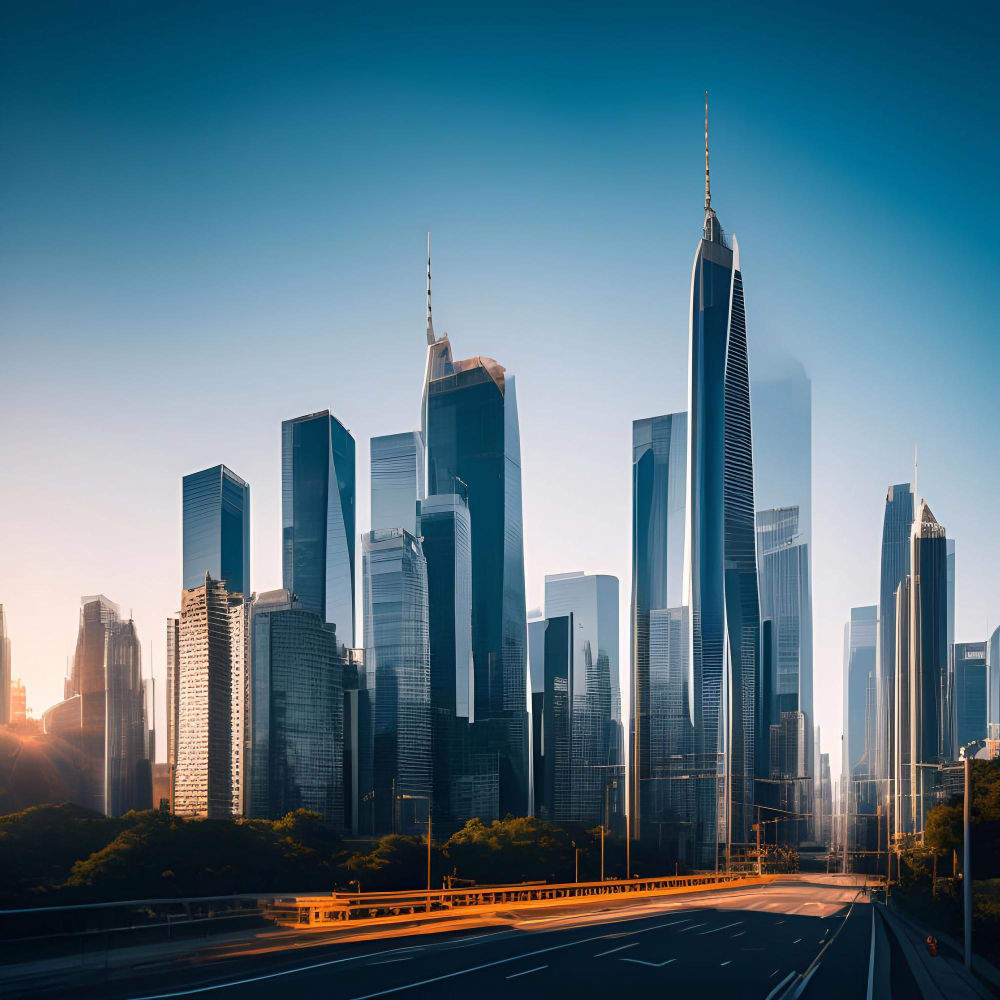Real Estate
An Epitome of Growth and Innovation
Over the past few decades, the UAE, particularly Dubai, has carved a niche for itself within the global real estate market. From humble beginnings in the 1970s, marked by basic housing projects, to an era of magnificent architectural marvels, the trajectory has been nothing short of impressive. Dubai’s 2002 pivotal policy allowing foreigners to own freehold properties in specific zones catalyzed a massive influx of international investment. Recent reports underscore this growth: sales in Dubai’s real estate market skyrocketed with a 61% increase since 2021, reaching a staggering AED 240 billion in 2022.
The global real estate sphere has seen the UAE consistently outperform many counterparts, thanks in part to its strategic location, progressive policies, and a robust economy pivoted on trade and tourism. In 2022, foreign investment in the emirate’s property market surged. Factors such as global currency fluctuations, particularly involving the US dollar, have been cited as driving forces behind this trend. Yet, it’s Dubai’s diversified and resilient economy that remains its primary draw, as evidenced by the foreign investors who accounted for a significant 68% of all real estate buyers in 2022, marking a 10% rise from the previous year. As the global market leans toward tech-integrated and sustainable living spaces, Dubai, with its pioneering projects like Masdar City and The Sustainable City, seems primed to lead the way, solidifying its position as a global real estate titan.

Emerging Dynamics
Navigating the Resilient UAE Real Estate Market
The robustness of the UAE’s real estate market, particularly in Dubai, is evident from its steadfast performance amidst global shifts. While many international markets faced challenges, Dubai’s property sphere stands out, defying global trends and continuously showcasing growth. The prime residential sector’s stellar performance, with over 200 purchases above US $10 million in the recent year, surpasses the combined transactions of the previous eight years.
Such bullish behavior has attracted High Net Worth Individuals (HNWIs) to invest in unique strategies like purchasing mixed-use single-owner towers or villa compounds. By acquiring them en masse and subsequently subdividing them for individual sales, these investors are leveraging an arbitrage opportunity between bulk purchase prices and individual unit sale prices, eyeing impressive margins of 20-30%.
In Q2 2023, Dubai recorded 27,215 real estate transactions. Although this reflects a marginal 4% drop from Q1 2023 due to external factors like holiday breaks, the year-on-year growth compared to Q2 2022 is impressive at 37%. This growth is primarily fueled by a 57% spike in apartment transactions, as individuals opt to buy properties to evade escalating rents. Conversely, villa and townhouse transactions witnessed a dip due to limited supply and fewer new launches.
Developers remain optimistic with over 34,000 units launched in 2023. Off-plan transactions surged by 67% compared to Q2 2022, signalling continued investor confidence. A reported 26% increase in sales transactions and a significant 32% boost in MOUs year-on-year further highlight the buoyancy of the market.
The international appeal of Dubai’s real estate remains unwavering. Investors from all corners of the globe are attracted, thanks to its reputation as a stable, tax-efficient, and high-return environment. Indian and UK nationals continued to lead in real estate purchases during Q2 2023, but a surge in non-European buyers was also evident, especially from Egypt, Turkey, and Pakistan.
The UAE’s real estate market, with Dubai as its cornerstone, is set for enduring growth. The market’s resilience, adaptability, and perpetual evolution underscore its attractiveness for global investors. With expert guidance available, investors can navigate this vibrant market with confidence and foresight, tapping into the myriad opportunities it presents.










